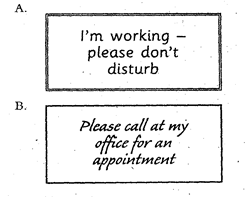题目内容
C
People have long debated the essence(本质)of human nature.Some people think humans are
born good.In San Zi Jing(Three Chara~er Classic),a Chinese children’s educational book from
the 13th century, we read:“Men at birth are naturally good.Their natures are similar, their habits
become different.’’
Yet some philosophers disagree with this.They think men are born selfish and vicious(恶的).
For example,Thomas Hobbes,the 1 7th century English philosopher argued that men are born self-
interested and with a liking for war.
Over the centuries,different philosophers have argued their cases.Now the results of a new
study,which contrasts the behavior of very young children and young chimpanzees(黑猩猩)
suggests that human beings are born sociable and helpful to others,according to a New York Times
report.
“Of course every animal must to some extent be selfish to survive.But the biologists also see
in humans a natural willingness to help.”The New York Times science reporter Nicholas Wade writes.
Wade quotes a book published in October by American psychologist Michael Tomasello.
Tomasello writes:“When infants(婴儿)18 months old see an unrelated adult whose hands are
full and who needs help opening a door or picking up a dropped clothespin,they will immediately
help.The helping behavior seems to be innate because it appears so early and before many parents
start teaching children the rules of polite behavior.’’
Tomasello finds that this behavior is not the result of an incentive(动机)of a
reward,suggesting training does not influence it.And it seems to happen across cultures,with their different timetables for teaching social rules.For these reasons,Tomamsello concluded that helping is natural,not something taught by parents or culture.
And it seems that infants cannot only help in practical ways,it can also help with information,
Tomasello writes.From the age of 1 2 months they will point at objects thin all adult pretends to
have lost.Chimpanzees,by contrast,never point at things for each other, and when they point for
people.it seems to be as a command to go fetch something rather than to share information.
49.What is the article mainly about?
A.The behavior of young children.
B.Former philosophies about human nature.
C.The difference between babies and baby chimpanzees.
D.A new study of human nature.
50.According to Michael Tomasello, human beings are born __________.
A.similar to chimpanzees in nature B.selfish and Vicious
C.sociable and helpful D.with a liking for war
51.Of all the following,__________has a negative attitude towards human nature.
A.Three Character B.Thomas Hobbes
C.Nicholas Wade D.Michael Tomasello
52.According to the study,it's safe to say that __________.
A.human beings are not selfish
B.children like to help others when they get a reward
C.different countries teach social rules at different times
D.children tend to be helpful if they are taught early
49—52 DCBC
解析


